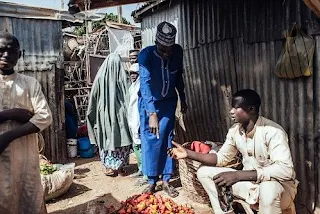Explaining a Local Government in Nigeria
In Nigeria, a Local Government Area is a smaller area that helps the government focus on the specific needs and issues of the local people who live there. It's similar to how counties work in the United States.
In Nigeria, the administrative divisions follow a three-tier system: National, State, and Local Government Area (LGA).
Nigeria has one Federal Capital Territory and 36 states. Each state is divided into Local Government Areas (LGA), and there are a total of 774 LGAs across the country. Examples of LGAs could be cities, towns, or rural areas within a state.
The National level is the highest administrative level and encompasses the entire country of Nigeria. The central government operates at the national level and is responsible for matters that affect the entire nation, such as defense, foreign affairs, and overall national policies.
The State level is below the national level, and Nigeria is divided into states. Each state has its own government and administrative structure. State governments are responsible for matters that pertain to the state, such as education, health, infrastructure, and other state-specific policies.
Nigerian Local Government Area is a smaller area within a State government similar to USA counties. LGAs are cities, towns, and rural areas within a State.
In Nigeria, a Local Government Area, referred to as LGA, is an administrative division that exists to bring governance and public services closer to the local communities. It's similar to the way cities or counties function in the United States, but there are some key differences.
Imagine Nigeria as a big country with different states, similar to how the U.S. has states. Within each state in Nigeria, there are smaller areas called Local Government Areas. These LGAs act as smaller units of administration that cater to the specific needs of the people living in those local communities.
Now, if you think about the United States, where you have states, counties, and cities, it's a bit like that. The state in Nigeria is like a state in the U.S., and within each Nigerian state, you have these Local Government Areas, which you can think of as similar to counties.
In the U.S., counties often have their own local governments, managing things like schools, roads, and other services specific to that area. In Nigeria, the LGAs perform a similar role. LGAs are responsible for providing basic services such as healthcare, education, waste management, and infrastructure development at the local level. that directly impact the people living in those communities.
LGAs are administrative units within a country that have the authority to collect specific taxes and fees within their jurisdiction. These taxes and fees could include property taxes, business licenses, and other local levies.
Each LGA is headed by a Chairman who is responsible for overseeing the administration of the area. Additionally, the LGA is divided into wards, and each ward is represented by an elected Councilor who serves as the voice of their constituents. The role of the Councilors is to ensure that the needs and concerns of their respective wards are heard and addressed by the LGA administration.
Depending on local regulations and structures, some LGAs have additional elected positions or appointed officials. These may include Vice Chairmen, Secretaries, Supervisors, and other administrative roles.
More links to articles you will find thought-provoking.
Part of the Resource Wars Archive
⚡ Explore Geopolitical Intelligence →




